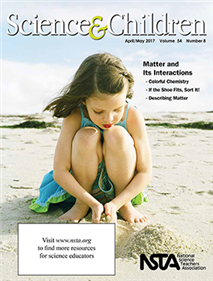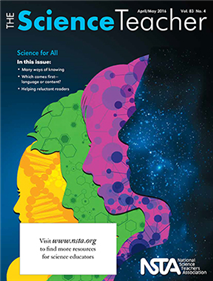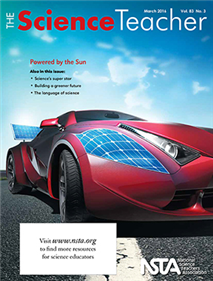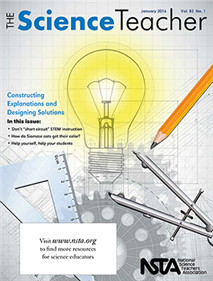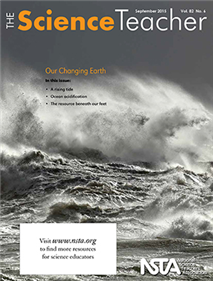All Chemistry resources
Journal Article
Editor's Note: Small Pieces of Matter
Science and Children’s editor shares thoughts regarding the current issue....
Journal Article
The Early Years: Mixing Materials
This column discusses resources and science topics related to students in grades preK to 2. This month’s issue discusses how students can observe the properties of matter and document changes as materials are mixed....
Journal Article
Safer Science: Preventing Alcohol-Based Laboratory Fires
This column provides best safety practices for the science classroom and laboratory. This month’s issue discusses why teachers performing lab demonstrations involving flammables should closely follow current legal standards and better professional...
Journal Article
Safer Science: Safer Use of Toxic Chemicals
This column provides best safety practices for the science classroom and laboratory. This month’s issue discusses the use of moderately or highly toxic chemicals....
Journal Article
Formative Assessment Probes: Uncovering Students' Concept of Matter
This column focuses on promoting learning through assessment. This month’s probe can be used to elicit young children's ideas about matter. The probe reveals commonly held ideas elementary students have about the types of objects, materials, and su...
Journal Article
Safer Science: Safer Reproductive Health in Science Labs
This column provides best safety practices for the science classroom and laboratory. This month’s issue discusses reproductive hazards in the science classroom....
Journal Article
Safer Science: Handling Hazardous Waste
This column provides best safety practices for the science classroom and laboratory. This month’s issue discusses the definition of and handling of hazardous waste....



